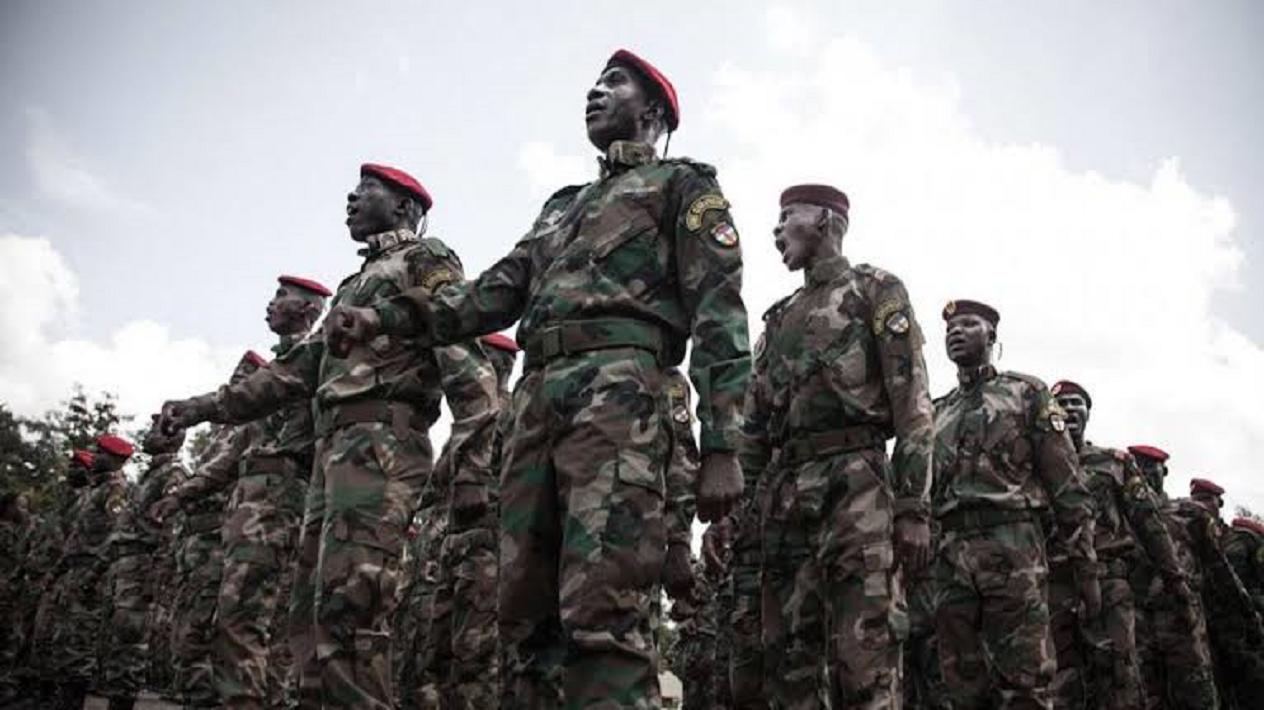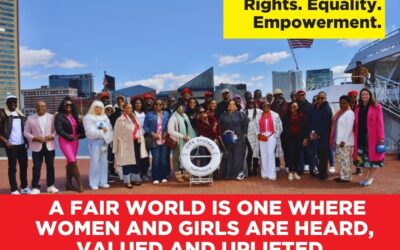Democracy suffered another devastating blow in Africa following the ouster of Mr Ali Bongo as President of Gabon by Gen Brice Oligui Nguema and other senior officers of the Gabonese military. Gen Nguema, who has since been named the interim President and his colleagues, had declared that their intervention was to “defend peace by putting an end to the current regime”. This military incursion in Gabon has once again beam the searchlight on the threat to democracy in Africa.
Without doubt the overthrow of Mr Ali Bongo, two days after winning re-election for a third term, albeit in controversial circumstances, soon after a similar military intervention in Niger, is a pointer to the resurgence of unconstitutional takeover of government and decline of democracy on the African continent. At the last count before the military struck in Gabon, between 2019 and 2023, there have been successful coups in Mali, Burkina Faso, Chad, Guinea, Sudan and Niger.
After democracy was toppled in Niger, whispers encouraging military takeover prompted the Nigerian Defence Headquarters to issue a statement denouncing such reports while reiterating its loyalty to the Commander-in-Chief and commitment to democracy. Notably, the recent wave of coups in Africa had forced Paul Kagame and Paul Biya, Presidents of Rwanda and Cameroun respectively, to carry out major reshuffling of their country’s top military hierarchy. Umaru Sissoco Embalo, President of Guinea-Bissau has also hurriedly appointed his loyalists into two key security positions to pre-empt any change of government.
The upsurge of putschists usurping democratic governance in Africa which has spread to Gabon seems to confirm the United Nations Secretary-General, Antonio Guterres‘s alarm of an “epidemic” of military coups in Africa. This view has also been shared by Nigerian President, Bola Ahmed Tinubu, who had expressed concern over “the seeming autocratic contagion” spreading across Africa.
The National Association of Seadogs, Pyrates Confraternity, condemns in its entirety military incursion and reversal of democracy in Africa. We deplore the use of unconstitutional methods to sack democratic institutions and the ascendancy of dictatorships by soldiers who are constitutionally tasked with the defence of democracy.
Democracy in its definition popularised centuries ago by the late American President, Abraham Lincoln as “government of the people by the people for the people” remains the best form of expression of the citizens’ will and sovereignty in governance. Despite its theoretical and practical imperfections, and the heterogeneity of its local iterations, democracy confers on the citizens the freedom of choice and the right of inclusion in the pursuit of the overall good of the society. It is our considered view that any dispute arising from conduct of elections should be resolved using legitimate and constitutional procedures, and any other method is simply an unacceptable imposition that must be vigorously resisted.
Remarkably, Africa has been here before. From the first coup in Togo in 1963 during which President Sylvanus Olympio was killed, coup d’ etats have been prevalent across the continent. From data compiled by two American researchers, Jonathan M Powell and Clayton L. Thyne, 214 coups have been attempted in Africa with 106 of such military takeovers recording success in 45 out of the 54 countries in Africa.
The excuses for such unconstitutional change of government have been declarations to get rid of corrupt politicians and put their countries back on the path of prosperity. However this smokescreen for the seizure of power was always a fluke and the reforming soldiers rapidly became worse than the civilians they replaced. Indeed years of military rule had set Africa backwards. In Nigeria and elsewhere where the military had taken over governance they had proved to be worse than the civilians. Aside corruption which often was elevated as a state policy under military regimes, widespread human rights abuses including clamp down on the media and dissenting voices, illegal detentions and poor governance practices, were the hallmark of military regimes. Gen Nguema who has taken over in Gabon is actually a cousin to the deposed Ali Bongo and was a strong ally of Omar Bongo when he was President. A 2020 investigation by the Organised Crime and Corruption Reporting Project (OCCRP) had accused Gen Nguema of several corrupt practices running into millions of dollars.
A vivid demonstration of dubious military incursion into politics is what is playing out in Sudan since power was seized in 2019 from longtime dictator, Oman Hassan al-Bashir who had seized power from civilians in 1989. Sudan has since been turned into a theatre of war by two factional generals of the Army, General Abde Fattah Burhan and General Mohammed Dagalo of the Rapid Support Forces. Both are at loggerheads, not for the good of the country, but who controls power. Official figures from the United Nations Office for the Coordination of Humanitarian Affairs as at June 2023 stated that at least 1,081 people have been killed including 300 children, while 11,714 people are injured and 2.5 million people have been displaced by the conflict between two factions of the military.
However, beyond the condemnation of toppling democracy in some African countries, NAS/PC believes the blame for the current spate of democratic backsliding should rest squarely with feckless African politicians. The return to civilian rule in most African countries has been disastrous. Elections have been turned into warfare where all manner of brute tactics are employed to retain power. Aided by Western powers like France in Francophone countries, African leaders have made mockery of democracy. African Presidents find it difficult to leave office. Bitten by the sit-tight bug and a delusional idea of omnipotence and impunity, they seek perpetuity in office. When they are not fraudulently stealing votes, they compromise and subvert democratic institutions according to their whims and keep altering constitutional limits to hold tight to power.
NAS/PC believes that many African leaders are suffocating democracy. As averred by Profs Steven Levitsky and Daniel Ziblatt in their book: How Democracies Die, which argued that democratic leaders can stifle democracy, actions and inactions of African democratic leaders have hobbled democracy on the Africa continent. For example, in Gabon, the Presidency has become more of a dynasty, Ali Bongo’s father, Omar Bongo spent close to 42 years in power before handing over to his son. Ali Bongo was losing the election but allegedly manipulated votes to ‘win’. In Côte d’ Ivoire, Alassane Quattara, backed by French soldiers, had altered the country’s constitution to give himself a third term. During the 2020 election, he arbitrarily awarded 94 per cent of the votes to himself. In Uganda, Yoweri Musuveni has spent 35 years in power; Paul Biya has held sway as Cameroonian President for 42 years; Paul Kagame has been ruling Rwanda for 23 years; Dennis Sassou has been President of Congo for 36 years, Theodore Mbasogo has been Equatorial-Guinea President for 44 years, Isaias Afwerki has been ruling Eritrea for 30 years. The Togolese Presidency has been a family affair. After the death of President Gnassingbe Eyadema in 2005, his son, Faure Gnassingbe, without any election, was installed President by the Army. He won a fourth term in office in 2022. The list of sit-tight leaders in Africa is depressingly long indeed!
Unfortunately, ordinary people have been at the receiving end of the bad behaviour of African politicians. Rich in mineral and human resources, Africa is nowhere near achieving its potential. The continent is lagging behind the rest of the world in all development indices. For instance data from the United Nations listed 33 African countries out of the 46 considered as least developed in the world. Similar data stated that out of 25 poorest countries, 23 are from Africa. The United Nations Children Fund (UNICEF) listed 16 African countries out of 20 with the highest number of out of school children. Certainly, these depressing statistics make Africans question the value of democracy.
Instructively, the viral videos of jubilant citizens celebrating the military takeovers in Niger and Gabon on one hand and the video of the deposed Ali Bongo calling on friends of Gabon “to make noise” on the other hand, conveys the true picture of Africans attitude to democracy. Ravaged by unemployment, grinding poverty, lack of adequate healthcare and other basic amenities while its leaders swim in opulence, the initial affection the people had for democracy is waning. The expectation that democracy would translate to economic empowerment and improved conditions of living has been dashed. Democracy is of no use to the people if it cannot stimulate economic development and engender prosperity for the citizenry.
NAS/PC implores African political leaders to learn from recent seizures of power to rethink their delivery of good governance to the people. While we support calls by the African Union and the Economic Community of West African States (ECOWAS) condemning the dismantling of democracy, we urge them to re-evaluate and reinvigorate their failing peer review mechanism and advocate for purposeful leadership that would place emphasis on welfare of the citizens, fulfilling electioneering promises and the promotion of peace and security in member countries. The rapid decline in conditions of living in several African countries has created a mass of frustrated and angry citizens that have little or no trust for many African democratic leaders. This calls for urgent and holistic political reforms geared towards accountability that places the citizenry at the centre of policy decision making. Furthermore we recommend that incumbent governments must imbibe democratic ethos that guarantee free, credible and transparent elections which allows citizens to vote and for their votes to count. The only antidote to military takeover is good governance which allows the citizenry to assert their sovereignty and make democracy thrive.
Now is the time for other African leaders to learn before it is too late.
Abiola Owoaje
NAS Capoon
Abuja


![[PRESS RELEASE] AFFIRMATION OF EMERGENCY RULE IN RIVERS STATE THROUGH “AYES AND NAYS”](https://www.nas-int.org/wp-content/uploads/2025/03/National-Assembly-Ayes-and-Nays-400x250.jpeg)

